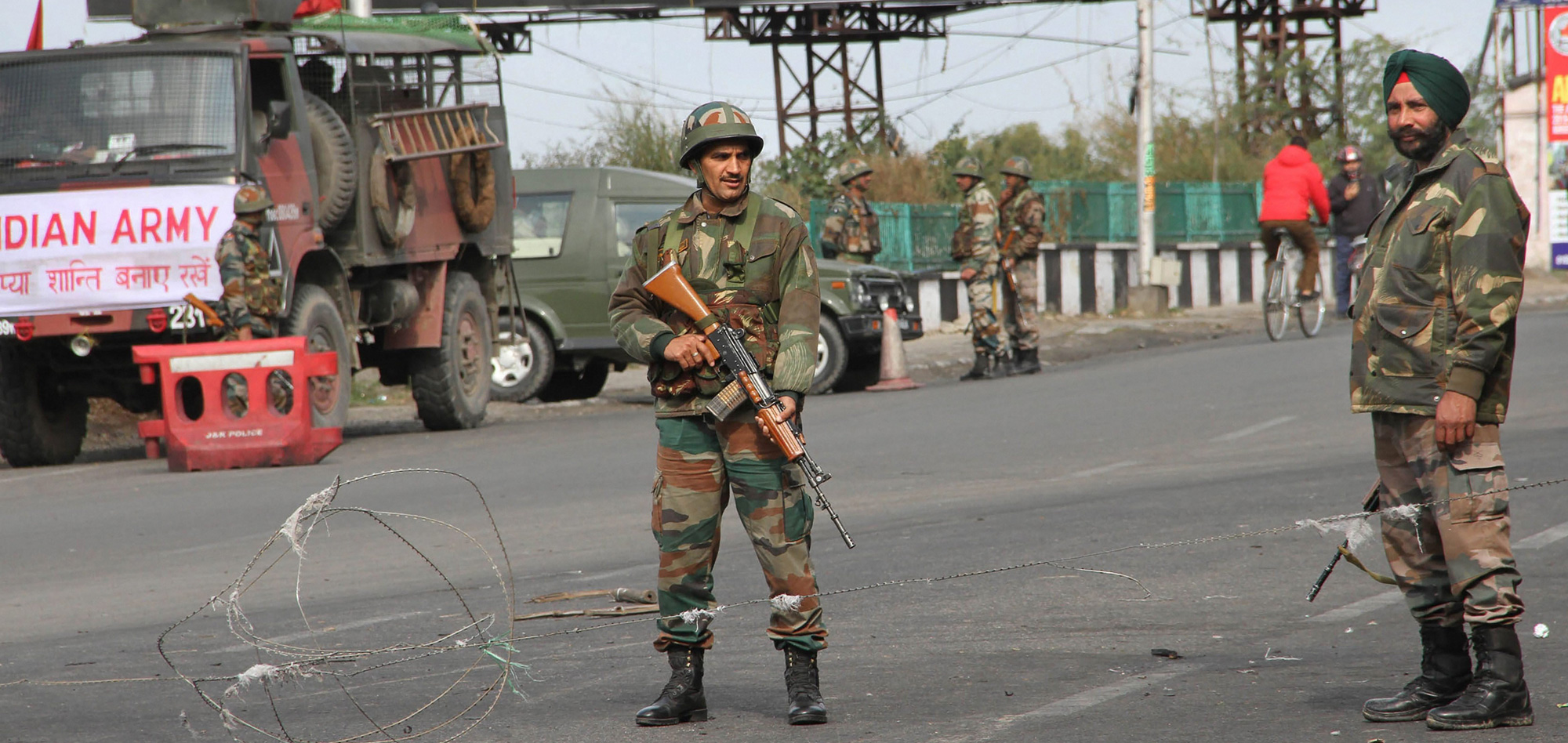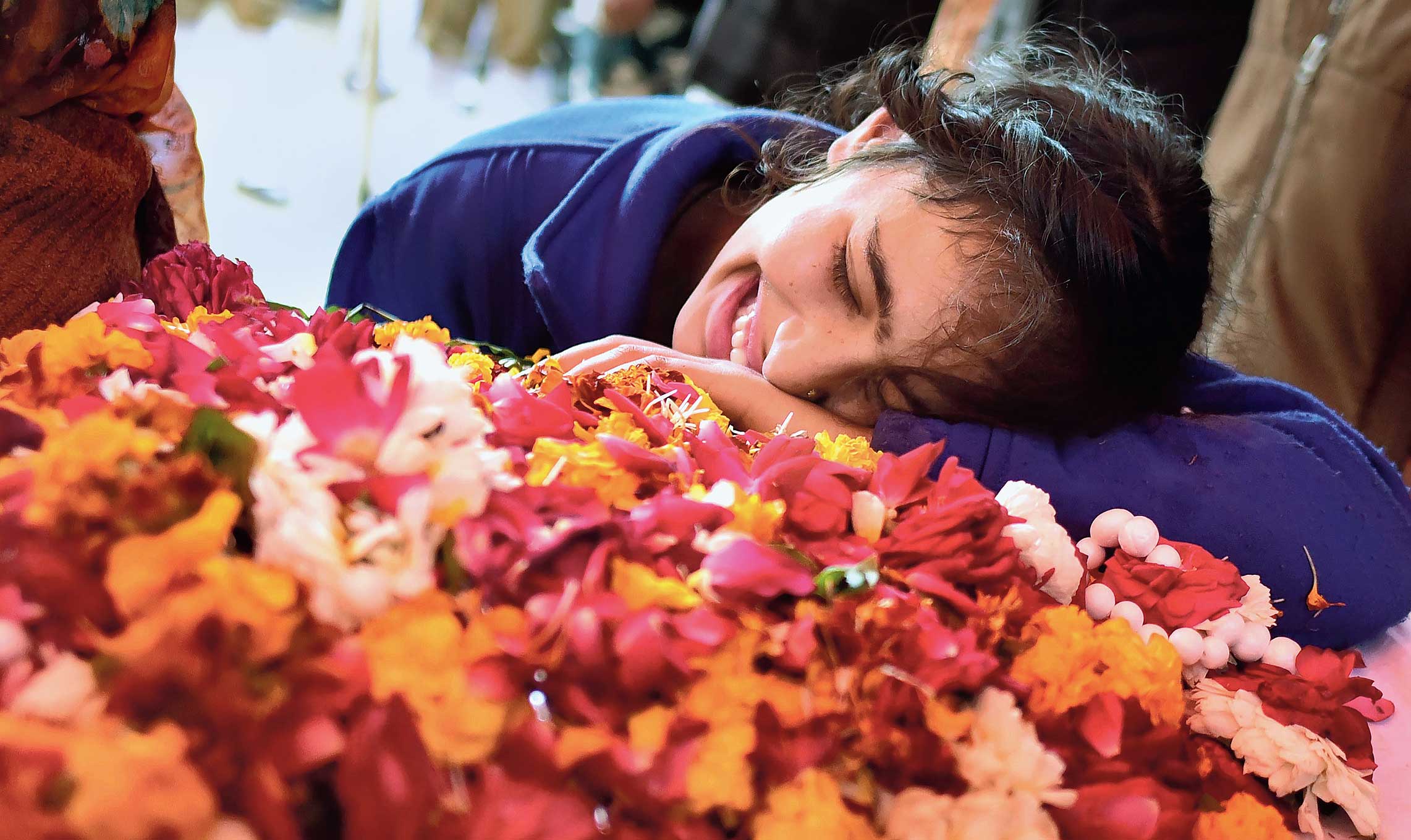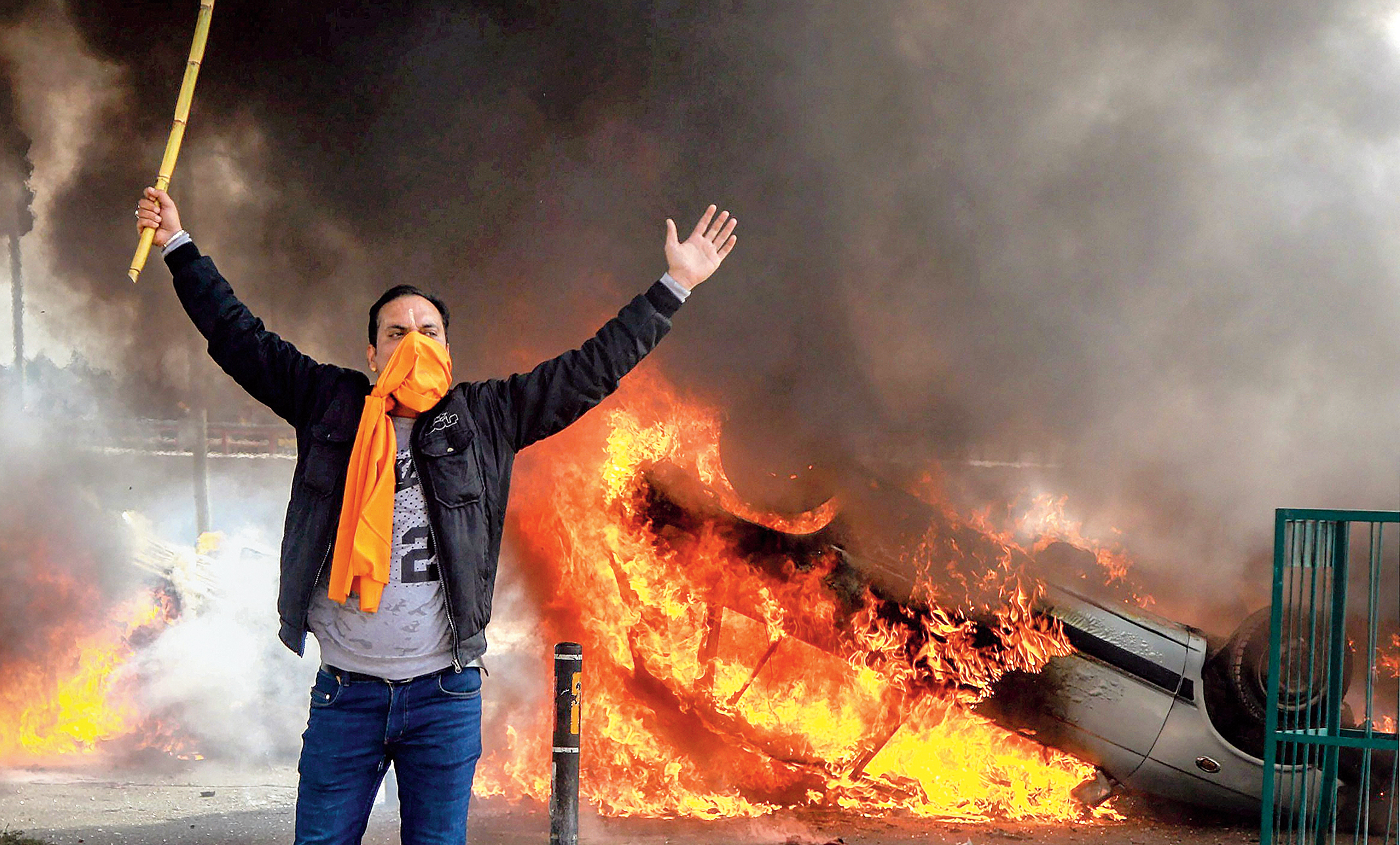The horror of the jihadi ambush that killed dozens of CRPF soldiers and its aftermath, the attacks on Kashmiri students in India, is a clarifying moment.
It demonstrates beyond reasonable doubt that Pakistan is run by a deep State that uses terror in the way a rogue dentist might use a drill: to deliberately and precisely hit a nerve and cause agony. Terror for Pakistan’s military-jihadi complex is a technology. For this vicious formation, the 22-year-old Kashmiri student who died blowing up the bus was a remote-controlled drone, worth nothing alive but a martyr the moment he died.
A State that traffics in martyrdom, an army that funds fanatical subsidiaries like the Jaish to train young suicide bombers, erases the institutional distinctions that make democracy possible. Pakistan’s army and its pliant civilian politicians have obscured the dividing lines between State and religion, civilian and soldier, citizen and true believer, even the basic difference between the preciousness of life and the desolation of death.
The nation state’s massive capacity for violence, rooted in its monopoly of force, is contained by conventions, laws and institutional practices that entrench these distinctions. With their erosion, Pakistan has gradually become feral; the majoritarianism injected into its foundation has corroded every institutional separation and restraint that civilizes a republic. Pakistan is a rogue state in this precise sense: it is Leviathan, unbound.
India is not Pakistan. It is important to say this not because this is an Indian paper but because it’s true. India has managed to sustain the semblance and substance of democratic politics through most of its career as a republic. It has been less successful in sustaining its constitutional commitment to being a secular, non-discriminatory State, but given the low bar set by its neighbours, it has been an important exception to the South Asian rule that nations are owned by their religious majorities. Unlike Pakistan, Bangladesh, Sri Lanka and Myanmar, it has never written the supremacy of a single faith into its Constitution.
This might seem a nominal distinction. Perry Anderson, for example, in his jeremiad The Indian Ideology, sees the Indian republic as a Hindu majoritarian State in secular drag but even lip service to a secular State matters in a way that can be simply demonstrated. If Narendra Modi were to win a second term in office and officially rebrand India as a Hindu rashtra, this would re-make every Indian’s experience of India. Our conversations and arguments, our sense of ourselves as citizens, would be defined by this re-naming. Hindus, whether they like it or not, would now officially be the first citizens of this Hindu Bharat and non-Hindus would become, by default, clients of this organic majority, guest citizens of the republic. Words matter.
But in the end, actions matter more. The Indian State’s history in Kashmir is one of duplicity, authoritarianism and, for the last quarter of a century, massive and increasingly violent military occupation. Some part of this can be justified as a sovereign state’s response to cross-border subversion and secessionism. However, the cost in human life in maintaining this sovereignty and, over the last decade and a half, the Central government’s unwillingness to negotiate a political settlement, have made it increasingly obvious that the Indian State sees Kashmir as a realtor might: scenic real estate occupied by a perverse people. Kashmiris committed to azadi and the Indian State have independently arrived at what seems like a single conclusion: that Kashmiri Muslims aren’t Indians.
Under Narendra Modi’s leadership, this proconsular attitude towards Kashmir has hardened. The state government has been dismissed and the pretense of representative government abandoned. The definition of Kashmiri Muslims as colonial subjects, who can be disciplined by shotgun pellets that this government wouldn’t dream of using against rampaging Jats because they are Hindu citizens in good standing, comes easily to the Bharatiya Janata Party because Kashmiris are a subset of a larger Muslim community that the sangh parivar is ideologically committed to subordinating.
India is not Pakistan but the road to Pakistan, the path to toxic majoritarian rule, is open to every nation. Under Modi, India took one of the exits that lead to that violent destination. Pakistan-style majoritarianism isn’t just a question of theory, it is also a matter of practice. In the five years of Narendra Modi’s government, Hindutva’s storm troopers have been given the space to practise their trade. The organized attacks on Kashmiri Muslims in Indian colleges and their hostels are part of a larger practice of majoritarian direct action, refined and made normal over the last five years.
The culture of lynching that grew out of the so-called cow-protection movement and the anti-Romeo squads intended to bully inter-faith couples and stigmatize Muslim men as predators are the necessary context for the attacks on Kashmiri Muslims in Indian institutions. First, they helped create a culture of impunity. Mr Modi’s prolonged silences and the loud support extended by his party men to murderous gau gundas and other vandals signalled that the State was willing to overlook ideologically sanctioned violence.
Secondly, in these five years, we have seen the sangh parivar and assorted Hindutvavadi outfits create Hindu equivalents for blasphemy and apostasy. The cow-protection movement is a way of defining the dietary practices and occupations of non-Hindus (and errant Hindus) that deviate from what’s allowed by Hindu orthodoxy, as blasphemous, punishable both by law and vigilante violence. In the same way as Pakistan’s minorities are besieged by allegations of blasphemy, Muslims and Dalits are bullied, harassed, imprisoned, even killed, on the charge of eating beef or trading in cows. Hinduism is stony ground for a concept like apostasy but the sangh parivar’s remaking of Indian nationalism in the image of India’s religious majority has helped define it: the self-hating Hindu as anti-national traitor. The vigilante murders of nominally Hindu intellectuals like Govind Pansare, Narendra Dabholkar and Gauri Lankesh mimic the machete murders of Muslim rationalists in Bangladesh and the assassination of secular politicians like Salman Taseer in Pakistan.
The elevation of Adityanath, a man with a long history of vigilante activism, to the chief ministership of UP, the normalization of lynching in North India and the attempt to legislate a religious test for citizenship via the citizenship amendment bill are creeping steps in the majoritarian campaign to transform a secular republic into a malignant Leviathan of which the likes of Masood Azhar would be proud. But we’re not there yet and the election of 2019 is one way of making sure that we never get there.













